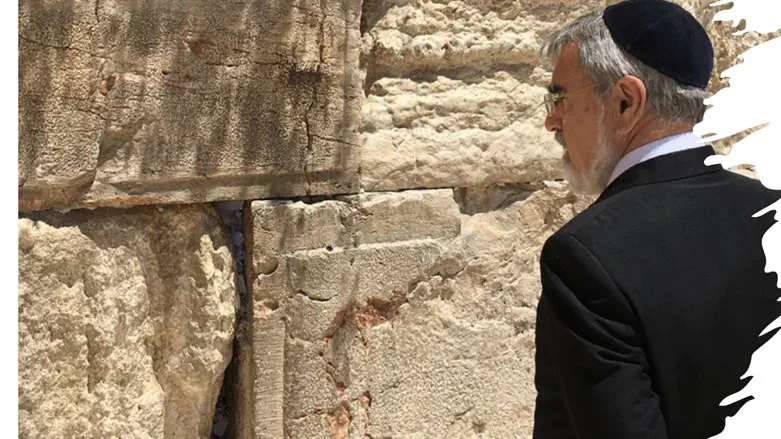
Judaism is a religion of memory. The verb zachor appears no fewer than 169 times in the Hebrew Bible. “Remember that you were strangers in Egypt”; “Remember the days of old”; “Remember the seventh day to keep it holy”. Memory, for Jews, is a religious obligation. This is particularly so at this time of the year. We call it the “Three Weeks” leading up to the saddest day in the Jewish calendar, Tisha B’Av, the anniversary of the destruction of the two Temples, the first by Nebuchadnezzar, King of Babylon in 586 BCE, the second by Titus in 70 CE.
Jews never forgot those tragedies. To this day, at every wedding we break a glass in their memory. During the Three Weeks, we have no celebrations. On Tisha B’Av itself, we spend the day fasting and sitting on the floor or low stools like mourners, reading the Book of Lamentations. It is a day of profound collective grief.
Two and a half thousand years is a long time to remember. Often I am asked – usually in connection with the Holocaust – is it really right to remember? Should there not be a limit on grief? Are not most of the ethnic conflicts in the world fuelled by memories of perceived injustices long ago? Would not the world be more peaceable if once in a while we forgot? My answer is both yes and no, for it depends on how we remember.
Though the two are often confused, memory is different from history. History is someone else’s story. It’s about events that occurred long ago to someone else. Memory is my story. It’s about where I come from and of what narrative I am a part. History answers the question, “What happened?” Memory answers the question, “Who, then, am I?” It is about identity and the connection between the generations.
In the case of collective memory, it all depends on how we tell the story. We don’t remember for the sake of revenge. “Do not hate the Egyptians,” said Moshe, “for you were strangers in their land.” To be free, you have to let go of hate. Remember the past, says Moshe, but do not be held captive by it. Turn it into a blessing, not a curse; a source of hope, not humiliation.
To this day, the Holocaust survivors I know spend their time sharing their memories with young people, not for the sake of revenge, but its opposite: to teach tolerance and the value of life. Mindful of the lessons of Genesis, we too try to remember for the future and for life.
In today’s fast-moving culture, we undervalue acts of remembering.
Computer memories have grown, while ours have become foreshortened.
Our children no longer memorise chunks of poetry.
Their knowledge of history is often all too vague.
Our sense of space has expanded. Our sense of time has shrunk.
That cannot be right. One of the greatest gifts we can give to our children is the knowledge of where we have come from, the things for which we fought, and why. None of the things we value – freedom, human dignity, justice – were achieved without a struggle. None can be sustained without conscious vigilance. A society without memory is like a journey without a map. It’s all too easy to get lost.
I, for one, cherish the richness of knowing that my life is a chapter in a book begun by my ancestors long ago, to which I will add my contribution before handing it on to my children. Life has meaning when it is part of a story, and the larger the story, the more our imaginative horizons grow. Besides, things remembered do not die. That’s as close as we get to immortality on earth.
![]()
Points to Ponder
What is the danger in obsessing about historical periods of grief? Why then is it important to remember? How can we learn this lesson from Holocaust survivors?
Other resources from Rabbi Sacks z"l
CEREMONY & CELEBRATION: FAMILY EDITION
A special edition of Ceremony & Celebration: Family Edition for the Three Weeks, including extracts from the writings of Rabbi Sacks together with questions, stories, and points for discussion.
SEVEN PRINCIPLES FOR MAINTAINING JEWISH PEOPLEHOOD
A video outlining how we can focus and strengthen during the Three Weeks.
> Click here to view

